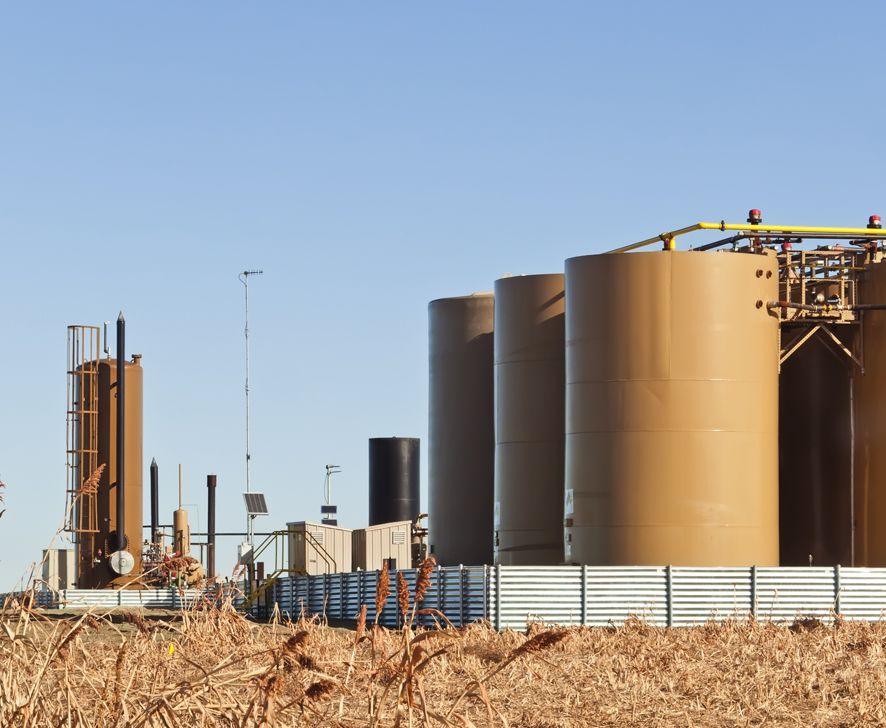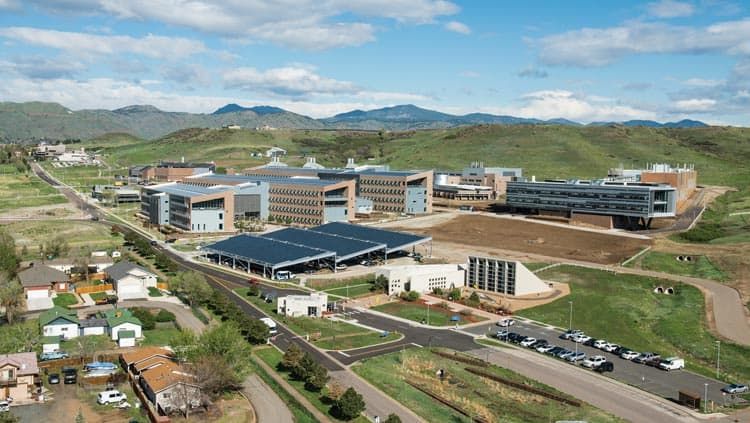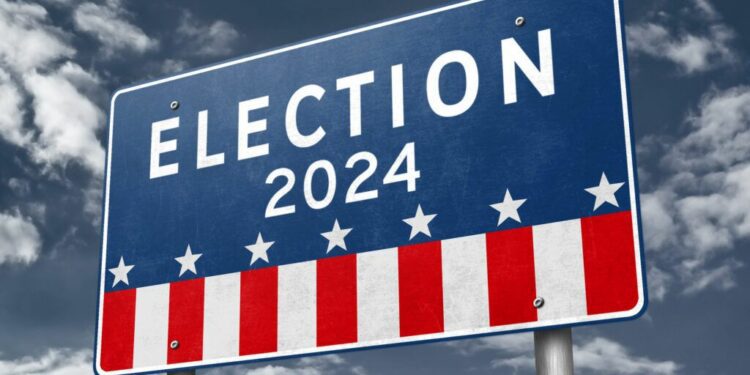Local experts attempt to distinguish rhetoric from reality
Beginning in January 2025, the United States will have a new president (albeit a familiar one), and when President-elect Donald Trump takes office for the second time, he will bring with him an unorthodox economic playbook — complete with a game plan that emphasizes tariffs, tax cuts and deportations — that will undoubtedly have significant implications for Boulder Valley and Northern Colorado businesses and workers.
Predicting which way the economic headwinds will blow can be a fool’s errand even when seas appear calm. But BizWest reporters spoke to a host of local experts in an effort to distinguish campaign promises from political reality and offer a clear-eyed peek into the region’s economic outlook under Trump 2.0.
“There’s a great distance between the political rhetoric and what ultimately is approved through the legislative process and executive decision-making,” Boulder Chamber CEO John Tayer said. “Having said that, if the political rhetoric is ultimately turned into policy and spending decisions, then certainly there are some concerning implications. But there are also, on the flipside, opportunities for our economic interests.”
SPONSORED CONTENT
A winning message on the economy
Let’s first look at how we got here. While the dust continues to settle and the finger-pointing intensifies among Democrats, it appears pretty clear that Trump’s message that President Joe Biden and Vice President Kamala Harris are less qualified to address the nation’s economic concerns won the day. (Although not in Colorado, where Harris outperformed Trump by double digits).
“With a lot of America, Biden’s administration’s policies didn’t necessarily resonate, and Harris was unable to differentiate herself from those policies,” said Richard Wobbekind, senior economist and faculty director of the Business Research Division at the University of Colorado Boulder’s Leeds School of Business.
The 2024 presidential election is “going to be a case study, because (the Trump campaign) managed to paint the economy as a bad economy that we are in, but we’re not in a bad economy by any sort of imaginable way,” he said. Gross domestic product “is growing at 3% and unemployment is down close to 4% — what’s not to like?”
But the reality is that many voters don’t particularly like this economy, in large part because they feel like they’ve been left out.
“Economists are ignoring distribution when it comes to wage increases,” Colorado State University economics professor Stephan Weiler said. Looking at raw data that shows the average wage went up in recent years “doesn’t tell you who” benefited from that overall increase.
“You can see wage increases (statistically applied to the workforce as a whole) simply by minting a few new billionaires,” he said. “That doesn’t help anybody in the lower sectors of society.”
The current national unemployment rate, which hovered around 4% on Election Day, “is relatively low if you have a bachelor’s degree or more,” Weiler said. But that rate “is actually quite high — around 8% or 9% — for those with” a high-school diploma or less.
Inflation, while tempering significantly over the last year or so, remained top of mind for many voters, many of whom appear to believe that Trump’s economic policies are more likely to bring down prices.
Experts aren’t so sure. This brings us to one of the key planks of the Trump economic platform:
Tax cuts and tariffs
Trump has promised to cut the corporate and personal tax rates and replace lost government revenue by imposing aggressive tariffs on foreign imports.
“The irony is that Trump got elected partially on people’s unhappiness with inflation. I don’t know what people are expecting, but prices aren’t going to drop,” Weiler said. “It’s not just American tariffs, it’s going to be a retaliation by our trading partners that is going to also be a real issue in terms of price increases.”
There is a fairly widely held belief by economists that “this tit-for-tat tariff structure is not good for anybody,” he said.
Trump’s proposed tariffs strategy “virtually has to create a higher inflationary environment,” Wobbekind said, which could be a bitter pill to swallow for Trump supporters who “voted the way they did because of the inflation we had over the last several years, and the fact that their standard of living isn’t what it was four years ago.”
Tariffs on “imported goods will essentially be a tax on consumer spending, and that can have an enormous impact on our retail sector and on our businesses that produce goods that depend on parts supplies that come from foreign countries,” Tayer said. “But tariffs are not new, and they’re not unusual. So when they’re issued appropriately they can fairly balance trade in areas where there may be other countries undermining our advancements in certain industry areas.”
The additional layer of cost associated with tariffs is almost always directly or indirectly passed onto consumers, Wobbekind said, and the U.S. manufacturing sector simply doesn’t have the capacity to on-shore all of the overseas factories that make the consumer products on which we all rely.
There is, of course, another perspective on the matter.
“The manufacturing sector will do better, and we have a lot of that in Weld County,” said Kevin Ross, the Republican chairman of the Board of Weld County Commissioners. “I think you’ll see those types of businesses go gangbusters right now as he (Trump) focuses on getting stuff produced in the U.S. versus abroad.”
Predictably, financial markets have responded positively to the scent of tax cuts in the air. The New York Stock Exchange Composite index is up more than 3.5% since Election Day; the S&P 500 has added almost 5%; Nasdaq is plus nearly 6%.
“You’re not going to see any sort of higher tax rates for wealthy individuals. I think you’re going to see a corporate tax reduction, which I don’t think you would have seen by a President Harris or a President Biden, had he (finished his campaign and) gotten reelected,” Wobbekind said. Investors “are clearly signaling that this is going to be a better environment for business,” he said.
Ross said Trump’s election is a positive sign for business investment in Northern Colorado.
“As I’ve been going around talking with business owners, ag producers, energy producers and others, there’s been a lot of money sitting on the sidelines,” Ross said. “People have been hesitant to get in because there’s been so much regulation from the Biden-Harris administration. Knowing Trump is coming in, these guys are excited to make investments and get back into the market.”
Deregulation and the traditional energy economy
Trump’s election is “a clear signal that we’re going to go into deregulation mode” for a wide swath of industries, from finance to energy, Wobbekind said.
“With oil and gas, when you have a Republican administration, the pumps get flowing and it drives the prices of oil down because we’re producing more,” Ross said. “In Weld, that’s a good thing and bad. It’s good to have more oil being developed but when you drive down prices, our assessed value in Weld goes down. Now (the county’s economy is) about 68% dependent on oil and gas. There are interesting pluses and minuses, but I’d rather have oil and gas flowing and being self-sustainable.”

Even with a more hands-off approach to regulation, Colorado’s fossil-fuels companies don’t have unlimited capacity or unlimited appetite to extract evermore oil and gas.
“Equipment is not easy to get and there are other places (outside of Colorado) that are more desirable to be putting the rigs in,” Wobbekind said. “But it wouldn’t surprise me at all if activity picked up in Colorado over the next year.”
Climate change and clean technology
“I think you can safely say that it’s not going to be a big priority in the Trump administration” to offer a helping hand to companies and research organizations that support reversing climate change, Weiler said.
“In climate science, Boulder is a renowned leader, and we have a great deal of intellectual capital here and a great deal of the resulting business activity from climate-science research and technologies,” Tayer said. “If (the federal government) were to zero out that funding, well, that would leave it up to other sources to pick up the slack. Or it could have an immediate impact. We’ve heard the same kind of rhetoric (related to slashing climate-change research budgets), but that ultimately didn’t come to pass.”
But if worst-case scenarios were to materialize, “a number of researchers and projects in our community would lose their funding,” he said.
Those worst-case scenarios are unlikely, Wobbekind said, based on evidence from prior Republican presidential wins.
“I heard that President (George W.) Bush was going to shut down (the Colorado-based National Renewable Energy Laboratory) — the party’s over,” he said. “But by the time he left office, their budget was larger than it was when he started.”
Still, there are likely to be “some fundamental movements away from funding sustainability and climate science,” Wobbekind said. “I do think that there has to be some concern about that. It obviously impacts the labs here in Boulder, impacts NREL, it impacts the research that we’re doing” at the University of Colorado, Colorado State University and other nearby institutions.
 The National Renewable Energy Laboratory in Golden generates a sizable impact on the state’s economy, with some of that filtering to companies in the Boulder Valley and Northern Colorado. Dennis Schroeder/NREL
The National Renewable Energy Laboratory in Golden generates a sizable impact on the state’s economy, with some of that filtering to companies in the Boulder Valley and Northern Colorado. Dennis Schroeder/NREL
The issue of research funding for clean technologies gets a bit more nuanced when you think about which government agencies are heavily invested in weather-tech advancement. One such group is the U.S Dept. of Defense — and no one expects a Republican administration (or, frankly, a Democratic one) to slice the Pentagon’s budget.
“A tremendous amount of defense (spending) relates to space and the atmosphere — geocoding and global spatial relationships, all that stuff,” Wobbekind said. “We use it for weather, but we also use it for defense.”
The likelihood of a drastic reduction in research related to military projects is rather unlikely because that “could create potential vulnerabilities for our national defense,” Tayer said. “There is talk about extreme budget change, but I think in more sober moments there will be a deeper discussion about the necessity of that kind of federal investment.”
While a Trump presidency could bode well — or at least allow for the maintenance of the status quo — for Colorado’s aerospace and defense companies, his election could put into jeopardy the Centennial State’s role as home of the U.S. Space Force.
There is concern that Trump could revive efforts “to move Space Command to a state that actually voted for the president,” Wobbekind said, namely Alabama, which has a large aerospace cluster around Huntsville.
Immigration and deportation
Immigrants, first and foremost, are people. So, as Trump vows to begin deporting millions of undocumented immigrants and asylum seekers beginning on Day One, it’s important to first examine the issue through a human lens rather than an economic one.
“When I think about immigration, for me it starts with the social-fabric side of the equation, the individual human beings,” Tayer said. “Many of the folks who are targeted by the rhetoric around immigration issues are individuals who are important leaders in our community, they’re established members of our workforce, and they contribute greatly to enriching our culture and society.”
Obviously, if millions of people are removed from the county, those folks are also removed from the labor force, creating economic challenges in states such as Colorado that are already anticipating an aging population.
Agriculture “is going to be one that’s most affected” by mass deportations of immigrants, who provide a critical source of labor on Northern Colorado and Boulder Valley farms and in food-processing facilities, Weiler said.
Ross said he participated in a phone call last Thursday with U.S. Sen. John Hickenlooper, D-Colorado, and agribusiness leaders and didn’t come away with the impression that Northern Colorado farmers are overly concerned about Trump’s immigration policies.
“I don’t think Trump’s stances will hurt. I think he knows we need (labor). His stance is to have them come across in a legal manner, and for most of the ag producers, they have to anyhow,” Ross said. “… His immigration stance is to cut out the illegal immigration, because it’s hurting workers who are trying to come across the border legally. That wasn’t an issue being brought up by the ag community with Sen. Hickenlooper yesterday.”
Immigration attorney Stephanie Wolfe of Holland & Hart LLP in Denver said that both agricultural workers from overseas and highly-skilled immigrants seeking work visas may experience pushback or delays under a new Trump administration.

“What we did see in the previous (Trump) administration was increased scrutiny on … all employment-based visa types,” Wolfe said. “In 2019, the height of the Trump administration, we saw requests for evidence for immigration petitions increased to 40%. So today, we’re seeing a rate of 7.2%, and those requests for evidence cost employers money, time and delays. That’s just one example of that increased scrutiny. We also saw increased denials.”
An example of a request for evidence is asking an employer to show proof that they advertised a job and could not find an American citizen-equivalent for the position.
Wolfe said the approval rate for work visas was 62% in Trump’s first administration compared with 75% under Biden.
Government filing fees to allow employers to bring on a foreign worker are roughly $5,000, Wolfe said. “They’re really high, so a company has to really have a need for these workers in order to actually go through” the process.
High-tech industries often hire foreign workers because they cannot find American workers who can perform the job, Wolfe said, and increased scrutiny may discourage some workers from coming to the United States.
Wolfe said she is advising employers to prepare for extra costs and scrutiny under the upcoming Trump administration.
“Budgeting for the future is really important, making sure that you’re prepared for those increased costs,” she said. “I do think it’s important to keep going forward, to keep utilizing the H2A (temporary worker program) as much as you’re able to, but understand there may be some delays there.”
Still, Wolfe said, “it’s really unlikely the (H2A) visa would go away. We didn’t see that in the prior (Trump) administration. Employers will still be able to bring over workers on that visa.”
Increased workplace inspections may also become more common, and Wolfe said she would advise employers to invest more time and energy into E-Verify-program training to ensure that employees have their paperwork in order.
“It’s really important to pre-emptively make sure we’re doing all of our I-9 (employment verification documents) properly, utilizing E-Verify, and auditing to make” sure employees are adequately documented. “If there are issues,” employers can mitigate that by making solid efforts to proactively audit their own ranks, she said.
on Facebook
on LinkedIn
Lucas High

A Maryland native, Lucas has worked at news agencies from Wyoming to South Carolina before putting roots down in Colorado.
Sharon Dunn

Sharon Dunn is an award-winning journalist covering business, banking, real estate, energy, local government and crime in Northern Colorado since 1994. She began her journalism career in Alaska after graduating Metropolitan State College in Denver in 1992. She found her way back to Colorado, where she worked at the Greeley Tribune for 25 years. She has a master’s degree in communications management from the University of Denver. She is married and has one grown daughter — and a beloved English pointer at her side while she writes. When not writing, you may find her enjoying embroidery and crochet projects, watching football, or kayaking and birdwatching on a high-mountain lake.
Source link : http://www.bing.com/news/apiclick.aspx?ref=FexRss&aid=&tid=673136f61ed54b5e856790e4f229a6b2&url=https%3A%2F%2Fbizwest.com%2F2024%2F11%2F10%2Feconomic-impact-what-trump-administration-could-mean-for-northern-colorado-boulder-valley%2F&c=999063436130663042&mkt=en-us
Author :
Publish date : 2024-11-09 20:15:00
Copyright for syndicated content belongs to the linked Source.








